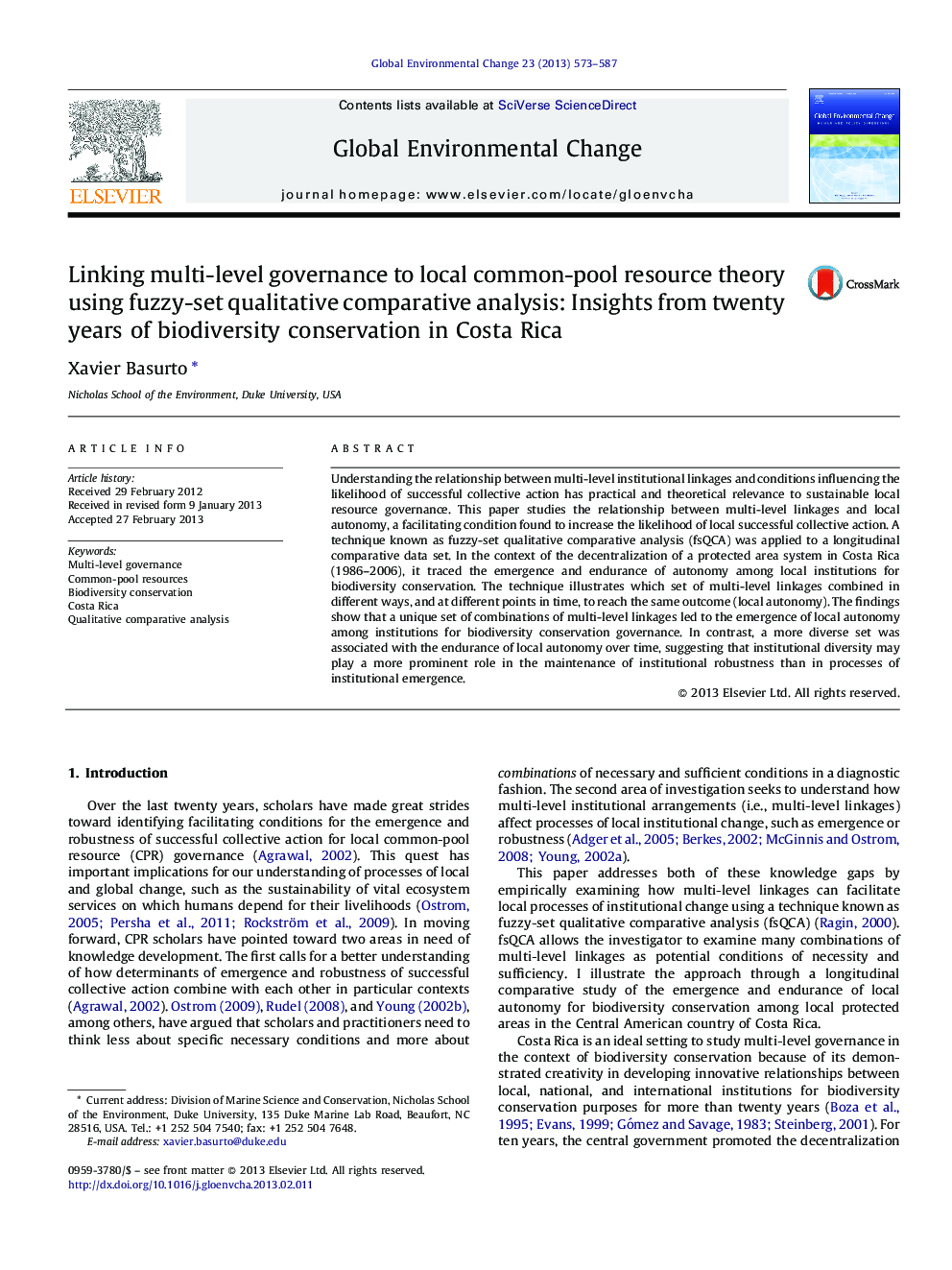| Article ID | Journal | Published Year | Pages | File Type |
|---|---|---|---|---|
| 10505001 | Global Environmental Change | 2013 | 15 Pages |
Abstract
Understanding the relationship between multi-level institutional linkages and conditions influencing the likelihood of successful collective action has practical and theoretical relevance to sustainable local resource governance. This paper studies the relationship between multi-level linkages and local autonomy, a facilitating condition found to increase the likelihood of local successful collective action. A technique known as fuzzy-set qualitative comparative analysis (fsQCA) was applied to a longitudinal comparative data set. In the context of the decentralization of a protected area system in Costa Rica (1986-2006), it traced the emergence and endurance of autonomy among local institutions for biodiversity conservation. The technique illustrates which set of multi-level linkages combined in different ways, and at different points in time, to reach the same outcome (local autonomy). The findings show that a unique set of combinations of multi-level linkages led to the emergence of local autonomy among institutions for biodiversity conservation governance. In contrast, a more diverse set was associated with the endurance of local autonomy over time, suggesting that institutional diversity may play a more prominent role in the maintenance of institutional robustness than in processes of institutional emergence.
Keywords
Related Topics
Life Sciences
Environmental Science
Environmental Science (General)
Authors
Xavier Basurto,
